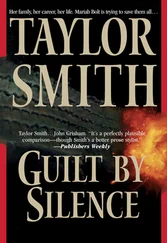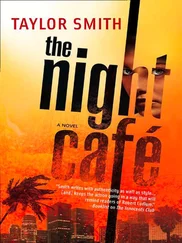“Drug overdose,” Kandinsky said, frowning at the boy’s spasms. “Sixteen years old. He’s three days into detox. This is his third time trying to get clean, and if he doesn’t straighten up and fly right this time, I don’t think he’s going to see seventeen.” She shook her head wearily. “A nice kid from a good home. Such a stupid, bloody waste. He’s the only other patient on total lock-down and round-the-clock watch.”
They moved on to the last room in the hall, and the doctor’s voice dropped to a murmur. “There she is.”
“Oh, Jesus!” Berglund breathed, his pale eyes gone wide.
Cruz turned to the window. He, too, was taken aback. He had Jillian Meade’s passport details, and from them, he’d begun to form a mental picture of her. Hair: brown. Eyes: brown. Height: 5'5". Weight: 110 pounds. Place of birth: Drancy, France, July 14, 1944.
All this information was contained in his battered briefcase in the trunk of the rental car, which was still parked back at Havenwood police headquarters. He’d also seen her in the Bicentennial group photograph hanging on Haddon Twomey’s wall, and there was another photo in his briefcase, as well, clipped to the corner of her file. The State Department had sent over a grainy copy of her passport photo, but it was clear enough to put some flesh on the bones of the other details he’d gathered. Hair not just brown, but very dark; long, below her shoulders at least, although she’d worn it center-parted and tied back conservatively for her passport picture. A wisp of long bangs, like a curtain, half concealing eyes that were large and slightly almond shaped. Her expression sober, chin tilted up slightly, as if she’d instinctively recoiled from the intrusive stare of the lens, the angle leaving the impression of someone looking down a nose that was unremarkable, neither too large nor too small. Her unsmiling mouth had been full, deeply colored, probably from lipstick, although it was hard to tell, since the picture was black and white. She wore small gold earrings and a simple gold necklace against a plain, rounded black neckline.
From those details and from the other information Cruz had gathered about her yesterday, as he’d gone from her apartment building to her workplace, he’d formed an image of a woman who was quiet, intellectual, buttoned-down and caught up in her work. Not unpleasant, but the kind who, as she approached middle age, rarely made eye contact, as if afraid of catching some fatal disease through the osmosis of social intercourse. A woman who might smile out of manners or nervousness, but who rarely laughed out loud. A thin woman with pale hands that never got dirty. A woman who haunted library stacks and hurried home each night from her museum job to a quiet, tidy apartment where she survived on yogurt, apples and three good books a week.
The problem was, that image didn’t mesh with the reality of a woman linked to three violent deaths. And it certainly didn’t fit with the image in the viewing port in front of them.
The room was painted a dull green color, furnished with a hospital bed, a steel chair and a rolling side table. Nothing more. The foot of the bed faced the window, so that although the woman lay on her side, propped on one elbow, they could see her in profile. She was wearing an oxygen feeder tube, and her breathing seemed raspy and labored. Her long legs were bare and bruised, tangled in the quilt but folded up in a near fetal position making her seem small, childlike and lost in the big institutional bed. Her face was strained and pale, eyes puffy, skin smeared with traces of soot. Her long hair was tangled and falling unheeded in her eyes. Thin arms poked from the short sleeves of a blue cotton hospital gown; like her legs, they seemed covered with bruises—although maybe, Cruz thought, it was only soot. There was, however, no mistaking the thick, gauze bandage on her left arm, just below the elbow, the aftermath, he presumed, of the incident with the air-filled hypodermic syringe.
Scattered on the mattress beside her were the spilled contents of a box of felt markers. Her right hand clenched one of the markers as she scribbled, rapidly and frantically, in a thick notebook, pausing only to flip pages. She was supporting herself on her left elbow as she lay on the bed, and that hand was compulsively kneading a corner of the quilt. Cruz watched the counterpoint movements, mesmerized by her left hand clawing at the covers while her right went on, scribbling and scribbling—down the notebook’s left-hand page, then flying to the top of the right, madly filling that one, and then flipping to the next. She worked with a frenzy that left him inclined to believe she was truly insane. And at that speed, he thought, she had to be writing gibberish.
So was she mad? Or too clever by half?
“She looks awful,” Berglund muttered. “Locked up in there, all alone. Isn’t there something…?”
“We’re doing all we can for her right now,” Kandinsky said. “At this point, the most important thing seems to be that she get down in that notebook whatever it is that she seems driven to put there. That and, hopefully, for her to sleep, and also to eat something. I might see if we can get her into a shower eventually, too. I know that would make her feel better. But right now,” she added, “this is what she needs to be doing.”
Berglund couldn’t seem to take his eyes off the crumpled figure on the bed. The doctor watched him for a moment, her face shifting to a puzzled frown, and then she reached out to touch him on the arm. “Deputy? Why don’t you and Agent Cruz go now? You can come back tomorrow and we’ll see where we stand then. She’s not going anywhere, and I’m sure you’ll find her much improved after a night’s sleep.”
Berglund snapped back to attention, pulling his gaze away from the window. “Right, that’s what we’ll do. I’d like to know right away if her condition changes, though,” he added, pulling out a business card, and then a pen that he used to scribble a number on the back. “These are my office and home telephone numbers. Would you tell her I was here, if you get a chance? And if she wants to talk, any time, no matter how late, call me?”
Kandinsky took the card he held, looked it over, and then slipped it into her sweater pocket. “I will, I promise.”
Berglund studied her for a second, then turned on his heel and headed up the hall without a backward glance.
Cruz took one last look at the figure on the other side of the glass. Jillian Meade’s one hand continued its frantic kneading of the bedclothes while, clenched in her other, the turquoise marker flew across the notebook pages.
I don’t know where to begin to tell this story. I lie here, searching for meaning in what happened, finding none that makes any sense. At the very least, I need to lay this out in a logical sequence of events, but I’m so confused by guilt and anger I can hardly think straight.
How do I do this? How do I explain why a woman as admired as my mother had to come to the end she did? And how do I account for the sick, twisted fate that forced me, a daughter as fatally flawed as she was, to sit in judgment over her?
I want to scream out at the unfairness of it. My throat and chest ache with the pressure of unshed tears, the way a dam must ache as it holds back a flood. But I can’t indulge myself. I haven’t earned the right to cry.
One thing seems clear: if I’m going to get this all down, I’m going to have to try to muster up some kind of detachment. Treat Grace Meade as just another one of my research subjects, a minor historical figure upon whom a handful of fates turned. Ignore the emotion-laden tie that binds us even now—that soft, invisible umbilical cord that’s been wrapped around my neck since the day I was born, slowly strangling the life out of me.
Читать дальше












